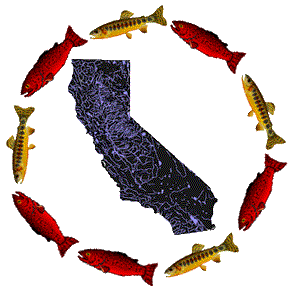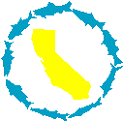CSPA |
| Your 501(c)(3) tax deductible cash donations are desperately needed if the fight for our fisheries is to continue. Read how you can donate! |
 Enter your Email address to sign up Enter your Email address to sign up for our Weekly Newsletter For Email Marketing you can trust |

 More News
More News
![]()
 CSPA and C-Win object to Grasslands Bypass Project Extension: Both find it contrary to established water quality and California constitutional law
CSPA and C-Win object to Grasslands Bypass Project Extension: Both find it contrary to established water quality and California constitutional law
by Bill Jennings, Executive Director, CSPA
March 24, 2009 -- CSPA and the California Water Impact Network (C-WIN) have filed comments on the proposed Grasslands Bypass Project Extension for 2010 through 2019, including the Proposed Agreement for Continued Use of the San Luis Drain between the U.S. Bureau of Reclamation and the San Luis Delta Mendota Water Authority. The comments also include the Draft Environmental Impact Statement/Report (DEIS/DEIR) for the Proposed Grasslands Bypass Project Extension. The Authority is seeking a ten-year delay of the Central Valley Regional Water Quality Control Board's (Regional Board) 1996 Basin Plan Amendment.
The Basin Plan Amendment was implemented through Waste Discharge Requirements that set a selenium objective for Mud Slough of 5 parts-per-billion (ppb) on a 4-day average that becomes effective in 2010. Selenium is highly toxic and bioaccumulative and the U.S. Fish and Wildlife Service has reported 10% mortality to salmonids at the water quality standard of 5 ppb. Present Mud Slough selenium discharges exceed 54 ppb, as a daily average.
The Authority is seeking the 10-year extension so that farmers and member agencies in the Grasslands Drainage Area can develop technology and obtain funding (neither of which they currently have) to comply with the regulations. CSPA/C-WIN believes that the premise of the Grasslands Bypass Project Extension is contrary to established water quality and constitutional law in California and that the DEIS/DEIR is inadequate as a full disclosure document of the environmental impacts and reasonable alternatives.